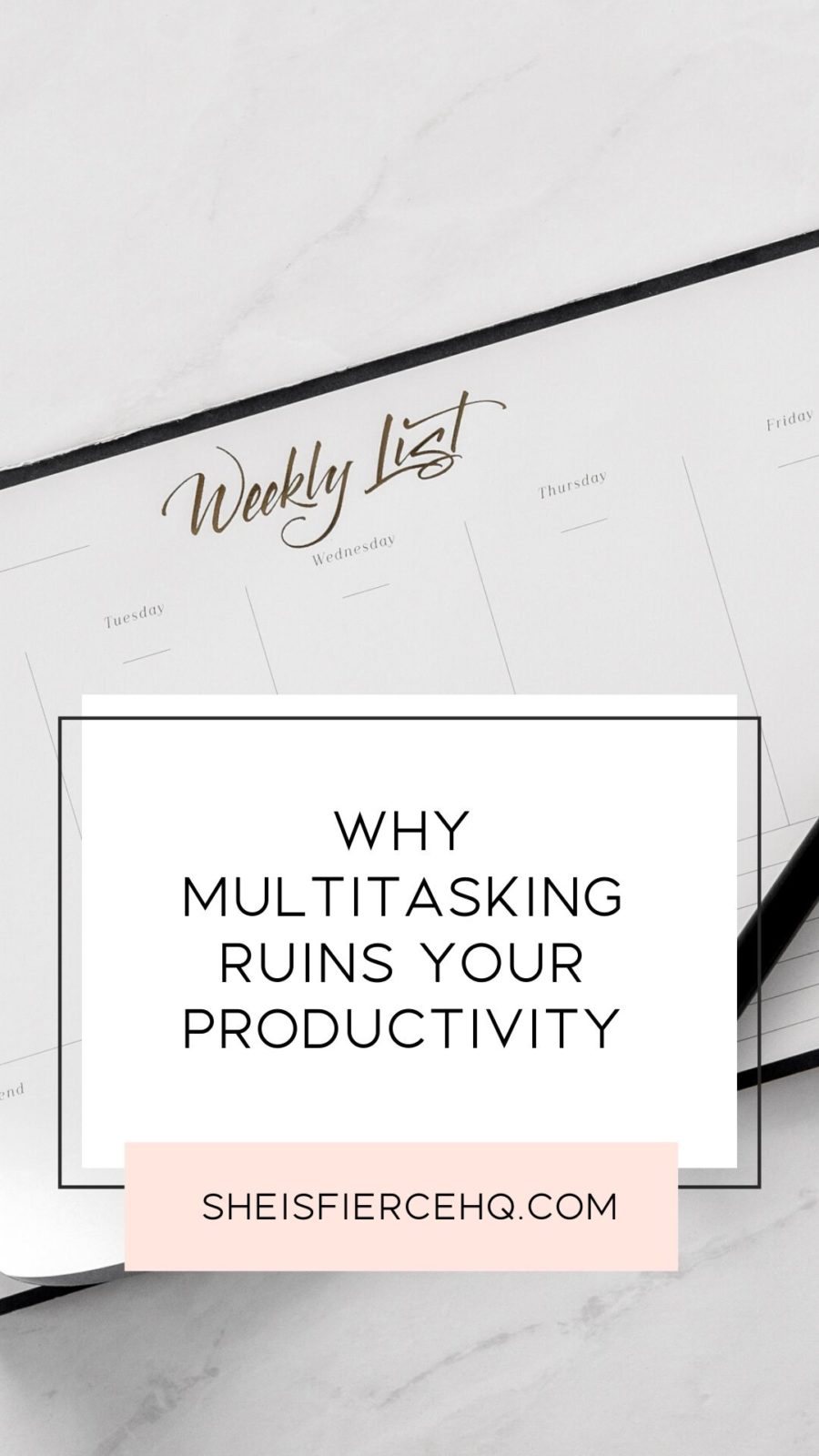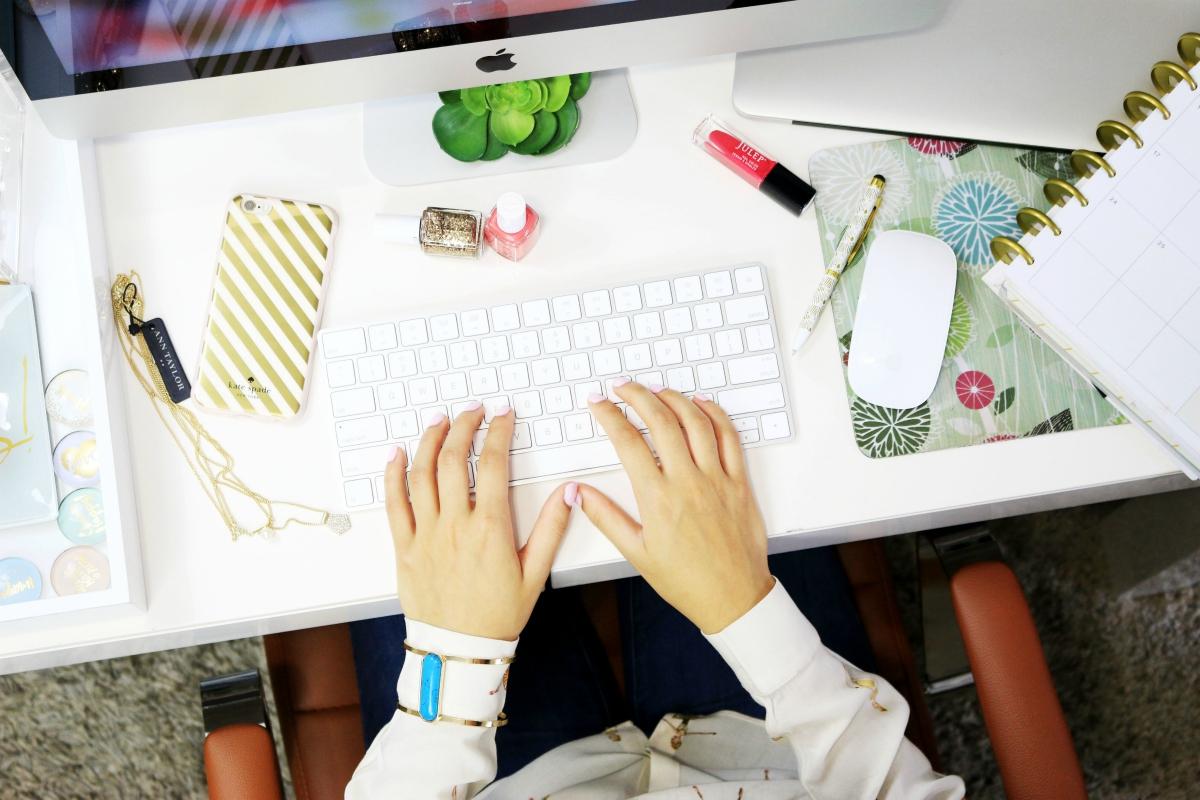
Multitasking is a notion that is vaguely defined as the ability to perform more than one task at the same time. Many people would describe themselves as savvy multitaskers, but talking on the phone while sprinting to your next meeting with coffee in hand hardly qualifies as multitasking. This is a common reality for most of us.
In order to be a true multitasker, one needs to be able to perform at least two tasks that require serious mental focus and concentration, and according to multiple studies published from Forbes, Psychology Today and even The Harvard Business Review, the myth of multitasking has been debunked.

Multitasking and the demise of focus
Based on more than half of century’s worth of cognitive science as well as more recent studies on the phenomenon of multitasking, it has been concluded that the so-called multitaskers actually do less and miss information. What does this mean in real-life terms? Well, multitasking isn’t so much doing several things at the same time as it is undertaking several tasks and switching from one to another. While this may sound like the road to success in theory, the practice isn’t as smooth and peachy.
Namely, when one decides to re-orient to their primary task – let’s say creating content, writing up a business proposal or working on a design – it takes 15 minutes for the brain to ‘get back in the swing of things’. This is true even after a minor distraction such as reading or responding to an email. Your efficiency levels drop to up to forty percent, and what’s even more concerning is that your long-term memory suffers, and creativity, which is inextricably linked with productivity. Even in less creative fields, it is also reduced.
So, in the words of Psychology Today, while you may be taking pride in watching a YouTube clip, answering an email, and talking on the phone, what you’re actually doing is ‘stepping on the gas then hitting the brakes, over and over’. In effect, this means that you are actually straining your brain and stretching its abilities, and not only will you not get the job done properly, but you will also start to feel lost. Even more importantly, the article mentions activities that don’t even require that much attention. So, if you are failing at completing minor tasks properly, what do you think will happen when you undertake several more serious and mentally demanding ones?
What is the alternative?
’s pretty straightforward – you need to stop multitasking and focus on one job at a time. This is the true key to productivity. As strong women in the business world, we want to make the most of our day: do our primary tasks and do them impressively well, conduct conference calls and answer emails, have a decent lunch and perhaps even an invigorating exercise session. The good news is, you don’t need to multitask like a mad woman to achieve all that in the course of one day. You simply need to develop excellent organizational skills, take advantage of the 24 hours that have been bestowed upon you and know exactly where your priorities lie.
Even better news is, most companies today offer great flexibility. Whether it comes in the form of shorter working hours, which have proven to actually increase productivity and even more importantly make you a happier worker, or the ability to work from home when you’re not on your A-game, flexibility is the key to productivity. So, please stop trying to do several things at once and start delegating your time smartly. There are numerous types of professions that the Digital Age has ‘spawned’ (and this isn’t a negative thing), such as freelance copywriting, social media management, doing paid surveys online, or doing freelance design work, that provide you with the flexibility you may need in your life. This is great in case your lifestyle and other commitments make it difficult to take on a 9-to-5 office job, but even these jobs require your undivided attention.
However, there is a catch to every profession. Being tied to an office desk may come with a set of perks in the sense that there are probably fewer distractions, which is not the case when you’re working from home. The good news is, as with everything else, even in the freelance or working-from-home scenario, there is a way to avoid this pitfall – practice. Practice makes perfect. Very few people are born with mad organizational skills, but this is where imposing self-discipline comes in. Write down your daily obligations in a planner, list them according to their importance and start scratching them off one at a time. The sense of achievement will be incredible – ticking one task off is more motivating than the false sense of achievement multitasking could ever provide. You’ve actually finished one thing, and can go about another feeling less and less burdened as the list becomes shorter.
How does one keep their focus?
Yes, if you’ve been trying to multitask, the transition to single-tasking may be difficult. If you’re working for a corporation, or are actually a lady boss running her own company, take the advice from a manager in the tech industry. If you have a group of people to lead, lead by example. Give them your undivided attention and they will eventually follow suit. Another amazing productivity ‘hack’ is imposing boundaries. This manager’s advice is to ask everyone to close their laptops during a meeting and put their phones away, but this can be applicable to employees and freelancers as well. If you’re working from home, for instance, try to keep your phone away and don’t open your email while you’re committed to your primary task. Take time to rest before switching to another task and give your brain a little reboot time.
Now, the last piece of advice may be the most effective, but it may take time for it to ‘stick’. Encouraging the ‘be here now’ culture, which is actually one of the pillars of mindful living, takes time to master, but it comes with great benefits. It requires a conscious effort to be constantly committing to the moment and drowning out all the distracting factors. One of the best ways to achieve this state of mind is by practicing meditation, so if you feel like you have trouble with time management and overall focus, definitely give meditation a try. It will lead you down the path of mindfulness and your levels of productivity are bound to spike. Lesson: leave multitasking in the past and start living in the present.
 Sophia Smith is an Australia-based beauty and style blogger. She is very passionate about the latest fashion trends and graphic design projects. Sophia writes mostly about beauty- and fashion-related topics in her articles. She has contributed to a number of publications including: Viva Glam Magazine, How to Simplify, Whytt Magazine and Carousel.
Sophia Smith is an Australia-based beauty and style blogger. She is very passionate about the latest fashion trends and graphic design projects. Sophia writes mostly about beauty- and fashion-related topics in her articles. She has contributed to a number of publications including: Viva Glam Magazine, How to Simplify, Whytt Magazine and Carousel.
You can find out more about her writing by following her on: Facebook Twitter Google +




Be the first to comment